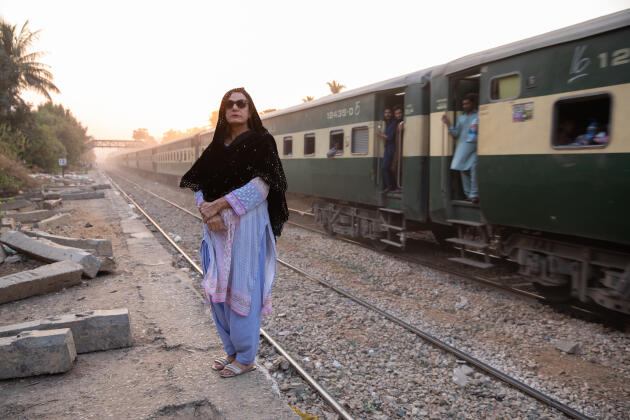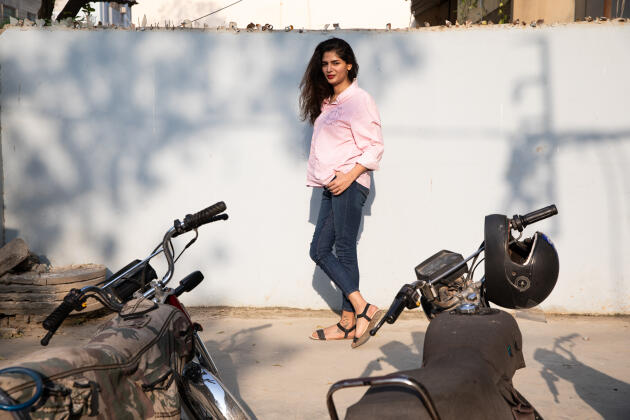Skinny in her jeans, barely wearing makeup, Sahzadi Rai receives people, sitting on the floor, in the premises of the association that made her famous, the Gender Interactive Alliance, located in a residential area in eastern Karachi. It’s still early, glitter is useless. The hostess is surrounded by around ten activists in saris, with masculine features, busy checking listings.
On June 7, at the age of 33, Shahzadi Rai opened a new page of history. With her colleague Chandni Shah, 48, they entered the municipal council of Karachi, the largest city in Pakistan, becoming the first transgender elected officials in the Islamic Republic. The two applicants belong to the community of khwaja sira or hijras, women born boys, transvestite or operated on and present throughout South Asia, heirs to a tradition inscribed in the courts of the Mughal emperors, where they were responsible for securing and managing harems. The khwaja sira were an integral part of society, some held high positions in the administration, until the arrival of the British colonists, who, to eradicate the eunuchs, placed them in 1897 on the list of “tribes” criminals.
The two newly elected officials benefited from a quota policy adopted by the province of Sindh in 2017, in favor of minorities. Two seats were reserved for transgender people. Shahzadi Rai appeared on the list of the Pakistan People’s Party, of the Bhutto dynasty, dominant in this province. More surprisingly, Chandni Shah was on that of an Islamic party, the Jamaat-e-Islami (Islamic Democratic Alliance, Sunni fundamentalist), spearheading, at the national level, the battle against the queer community.

Their election takes place in a context of very violent “hijraphobia”, led by religious parties. Three weeks before their entry into the municipal council, on May 19, the Federal Sharia Court had repealed a major law, adopted in 2018 by the Pakistani Parliament, on the protection of transgender rights. The Islamic court declared it incompatible with the Koran.
Exposed to all risks
This very progressive legislation was hailed around the world as a turning point in this very conservative country where homosexuality remains punishable by death. The text prohibited discrimination against transgender people in education, employment, health, public transport and housing. It gave them the right to determine their own gender on official documents, guaranteed them access to inheritance and granted them the right to vote. The Pakistani Supreme Court will have to decide the dispute between civilians and clerics; the high court opened the way in 2009, recognizing the third gender for the first time.
You have 65% of this article left to read. The rest is reserved for subscribers.
